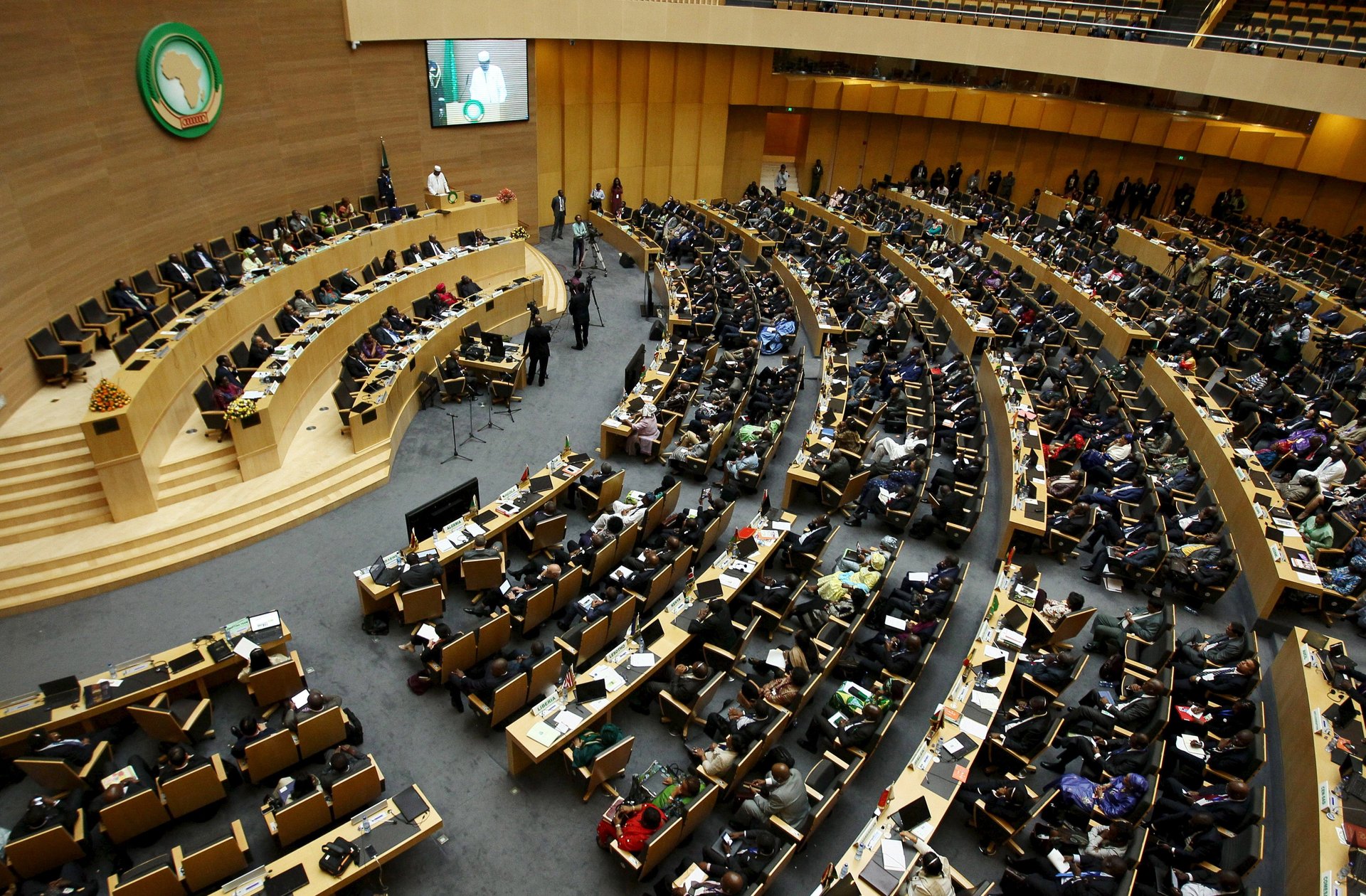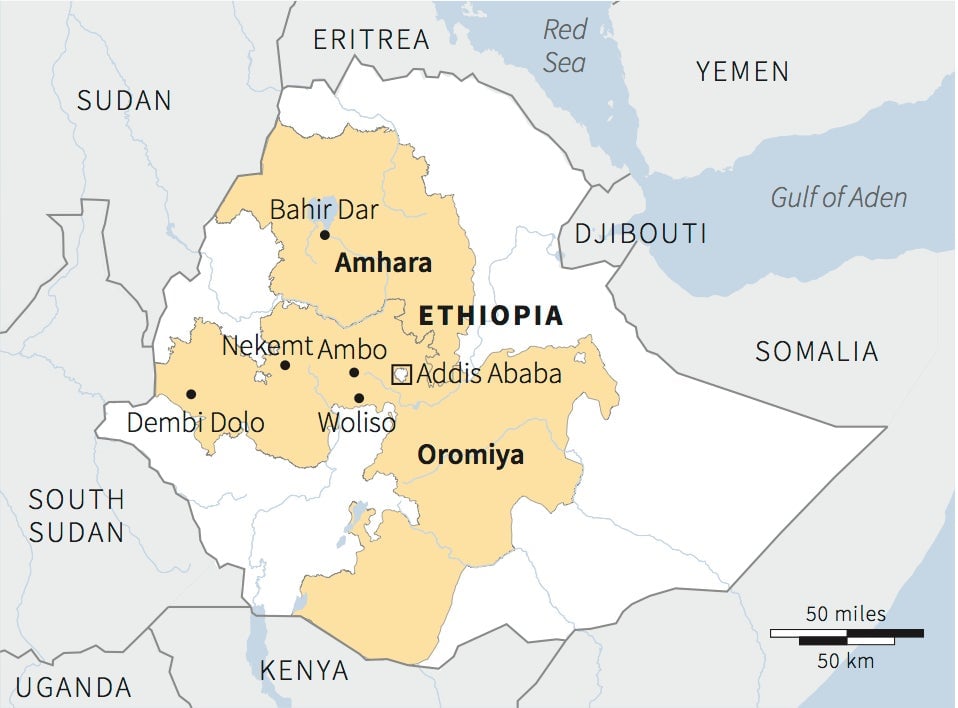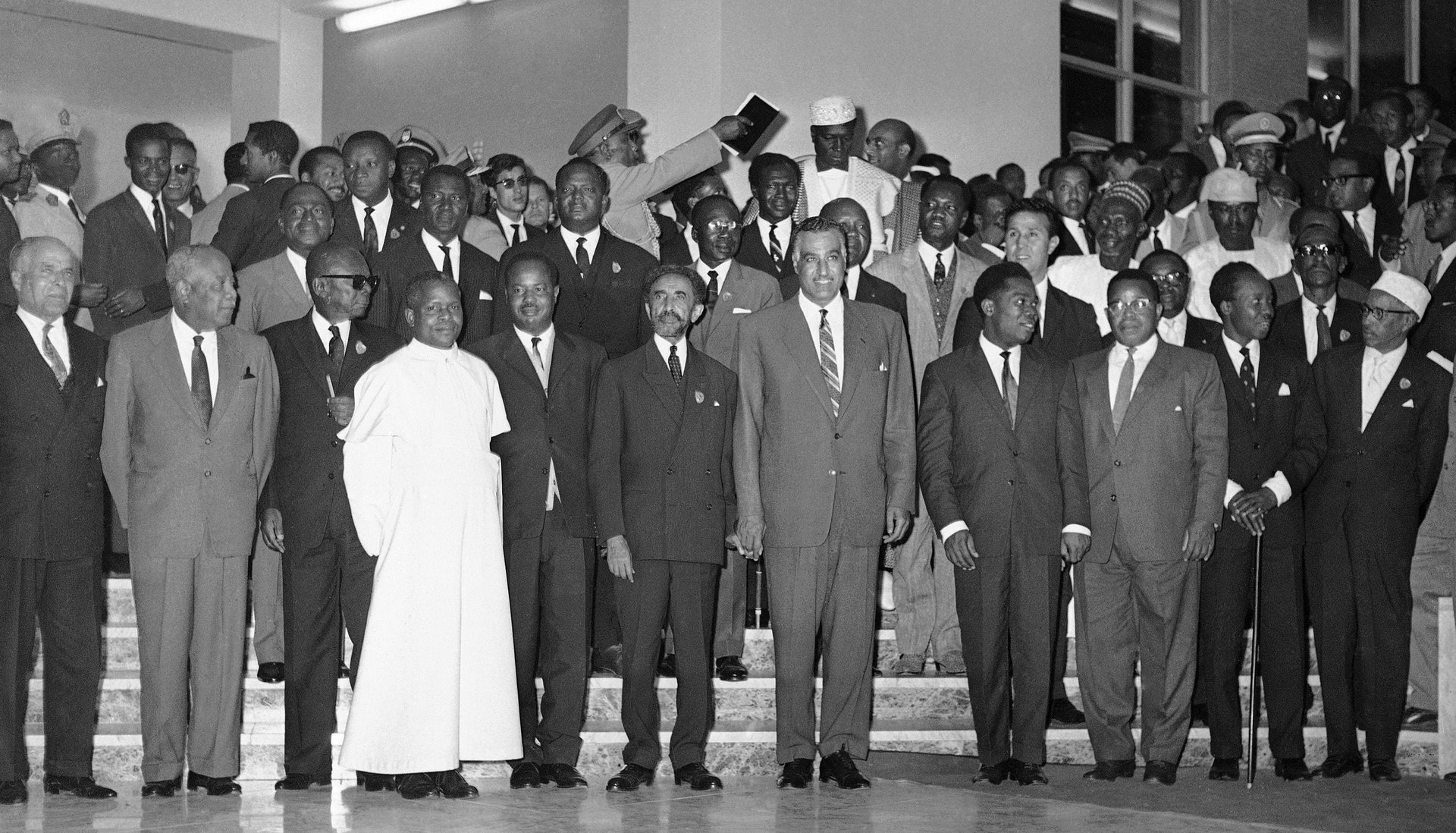One of the world’s most important diplomatic hubs is restricting the movement of diplomats
Ethiopia, home to the third largest number of diplomatic missions in the world, only after New York and Geneva—has limited foreign diplomats from traveling beyond a 40-kilometer radius (25 miles) out of the capital Addis Ababa.


Ethiopia, home to the third largest number of diplomatic missions in the world, only after New York and Geneva—has limited foreign diplomats from traveling beyond a 40-kilometer radius (25 miles) out of the capital Addis Ababa.
It’s part of new stringent laws published in the wake of a nation-wide state emergency. The government said the diplomats shouldn’t travel without official permission for reasons related to “their own security,” as the country grapples with renewed protests and a security crackdown.
The new rules also prohibit making contacts with groups labeled as terrorists, posting updates about the current state of the country, and introduced a dusk-to-dawn curfew around farms, factories, and government institutions. The new directives are the government’s response to the protests that have engulfed the country since Nov. 2015, which have led to the death of more than 500 people, according to international human rights organizations.

The new raft of measures has come as a surprise to many, who have viewed Ethiopia as an economic success and a bastion of stability in a turbulent region. As the continent’s oldest nation state, observers say the country cannot afford the current ethnic unrest to derail its economic progress.
“This is a state of emergency and we expect repressive measures,” a western diplomat told AFP on condition of anonymity on Monday. “But we also expect an opening of the political space for the opposition as stated by the president in front of the parliament. This is not what seems to be happening.”
The bustling capital of Addis Ababa is also known as the ‘political capital’ of Africa and hosts the seat of the African Union. The body’s $200 million headquarters is also the tallest building that dominates the skyline of Addis Ababa. The city was first recognized as Africa’s ‘capital’ after Ethiopia’s then leader Emperor Haile Selassie, convened leaders from around the continent for an African Summit in May 1963.

Ethiopia also hosts the United Nations Economic Commission for Africa and is home to more than 100 foreign embassies, according to Embassy Pages, which assembles a directory of foreign embassies and consulates.
The new wave of unrest has worried the AU, which has called for restraint from all parties and encouraged dialogue to address the socio-political and economic issues motivating the protests. Members of the Oromo and Amhara communities have been protesting economic and political marginalization from the Tigray-dominated government. The UN secretary general also expressed concern on Monday (Oct. 17) regarding the recent developments in the country, and urged authorities “to ensure the protection of fundamental human rights.”
As part of the emergency laws, political parties are also banned from issuing pressers that may incite any violence. Security forces are also not allowed to resign or go on holidays during the six-month emergency period. Those who break the terms of the state of emergency risk jail terms of three to five years.
Cell phone internet access has also been reportedly cut for weeks in most parts of the country.